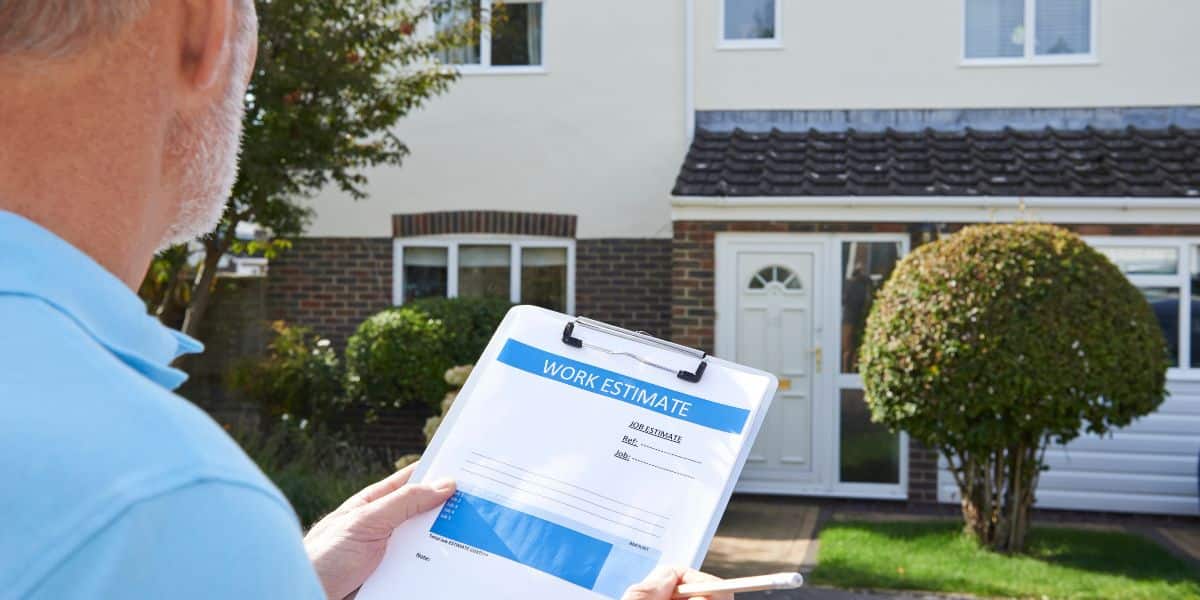When it comes to your upcoming roofing project, the choice of roofing contractor is paramount. Making the right hiring decision can significantly impact the outcome of the project and the quality of your new roof.
However, the roofing industry’s abundance of options can make selecting a reputable contractor a challenging endeavor. In this guide, we will walk you through a simple nine-step process to help you choose the ideal roofing contractor.
Step 1: Understand the difference between independent contractors and roofing companies
In your roofing project journey, it’s crucial to recognize the distinction between independent contractors and roofing companies, as each option has its own advantages and considerations. Here is a brief description of the two options and their differences.
Independent Roofing Contractors
When it comes to swift tasks such as roof repairs, independent roofing contractors can be an acceptable choice. The primary benefit of engaging an independent contractor is the streamlined communication, with a single point of contact throughout the project. Nonetheless, this singular approach may have drawbacks, as the project’s timeline could be extended, and locating them in the event of warranty issues might prove challenging.
Roofing Companies
For larger-scale projects like complete roof replacements, roofing companies are typically the preferred option. Working with a roofing company can offer various advantages, including potentially better pricing, faster project completion, and the assurance of a warranty. However, when dealing with larger entities, it’s common to interact with different individuals during various project phases, which may lead to varied points of contact.

Step 2: Research online reviews
Your journey begins with thorough research. Initiate your quest by conducting a Google search for “roofing contractors.” Examine the Google reviews of the top local roofing contractors. It’s advisable to focus on reviews from the past 3-6 months to gauge current homeowner experiences.
While reading reviews, exercise discernment as some may be overly positive or negative. Nonetheless, these reviews provide valuable insights into the quality of service, commitment to work, and customer interactions. In addition to Google, explore other online resources such as the Better Business Bureau, “Best of” lists, and community recommendation websites like Nextdoor.
While reviews and recommendations are valuable, complement your research by delving into each roofing company’s website to better understand their ethos and background.
Step 3: Prioritize local contractors
Narrow down your list of roofing contractors by emphasizing locality. Every roofing contractor under consideration should have a local physical office and a phone number with the local area code. Opting for a local roofing contractor ensures adherence to local building codes, proper documentation, and accessibility in case of any issues.
Another compelling reason for choosing a local contractor is to avoid out-of-state companies that swoop in after major storms. While some storm-chasing roofing companies may be reputable, many lack familiarity with local codes and regulations, potentially leading to substandard installations.
In addition, they won’t be around to help if something happens to the roof they installed. By hiring locally, you ensure that your project is carried out in compliance with your state’s requirements, with the added benefit of being able to locate the contractor if needed.

Step 4: Talk to multiple roofing contractors
With a list of local roofing contractors in hand, the next step is to contact two or three of them. Seeking multiple opinions is crucial as it provides diverse perspectives. Relying on a single contractor’s assessment can be risky, as some may recommend a full residential roof replacement when repairs are sufficient.
Engaging with multiple contractors not only helps determine your roof’s actual needs but also enables you to compare prices and identify the best fit for your project. This is probably one of the most important steps.
Step 5: Ask about their licensing and insurance
Roofing licensure isn’t mandatory in every state. Texas, for example, does not require a license. Nevertheless, several states do require licensing, so it’s advisable to consult your local government for guidance. In regions where licensing isn’t obligatory, it’s crucial to question the contractor about the means by which they substantiate their expertise and competence. Ensuring the safety of your home and all parties involved is of utmost importance, which is why having workers’ compensation and liability insurance is non-negotiable. Engaging the services of a contractor without appropriate documentation can expose both parties to significant risks. Additionally, it’s often recommended to inquire about any specific manufacturer affiliations the contractor may have.

Step 6: Choose quality over price
While cost is a critical factor, it is essential not to fixate solely on finding the lowest-priced contractor. This is especially pertinent for full roof replacements. According to Angi.com, the average cost of a new roof is about $9,000, depending on the size of your house and the size of your roof.
Opting for the cheapest option can expose you to the risk of subpar materials and workmanship shortcuts. Roofing contractors offering exceptionally low prices often use lower-quality materials and labor to cut costs, potentially compromising your roof’s durability. While affordability is important, remember that it is possible to obtain a quality roof without breaking the bank.
Step 7: Request references
Before finalizing your decision, request references from each potential roofing contractor for projects completed within the past 3 to 6 months. Contact these references to gain insights into the quality of the contractor’s work and the overall homeowner experience.
Contractors confident in their work will readily provide references for your evaluation. Contractors who hesitate or refuse to share references should be approached with caution.
Step 8: Get Everything in Writing
Regardless of the project’s size, it’s imperative to get a written quote. This written estimate serves as a financial planning tool and safeguards against unexpected expenses. It’s essential to have a documented record that covers estimates, project timelines, and other crucial details.
This way, both parties can easily reference the paperwork in case of any discrepancies or concerns. While it’s possible for the final price to fluctuate slightly, having a ballpark figure of your expenses is always reassuring.
Ensure that the roofing professional includes material costs, a breakdown of prices, payment terms, and any necessary insurance coverage in the written documentation.

Step 9: Compare estimates
After consultations, each contractor will provide you with a quote. Carefully review these estimates, paying attention to the breakdown of each line item. Ensure that all components affecting the cost, including roofing materials, labor, and cleanup fees, are clearly detailed.
While contractors may utilize different brands or manufacturers, the components should be of equivalent quality. Be vigilant for red flags such as hidden fees, lack of warranty information, or estimates presented without comprehensive itemization. Reputable roofing contractors should be willing to discuss and clarify all aspects of your estimate, fostering transparency and trust.
In Conclusion:
Selecting the right roofing contractor is pivotal to the success of your roofing project. While these nine steps provide a comprehensive framework for making an informed choice, your ultimate decision should align with your comfort level and trust in the contractor.
Additionally, asking the right questions during meetings with potential contractors can further aid in your decision-making process. So don’t be afraid to be ready with a thorough list of questions for each potential roofing contractor to answer. It is far better to be well prepared than regret it later when things don’t work out.

